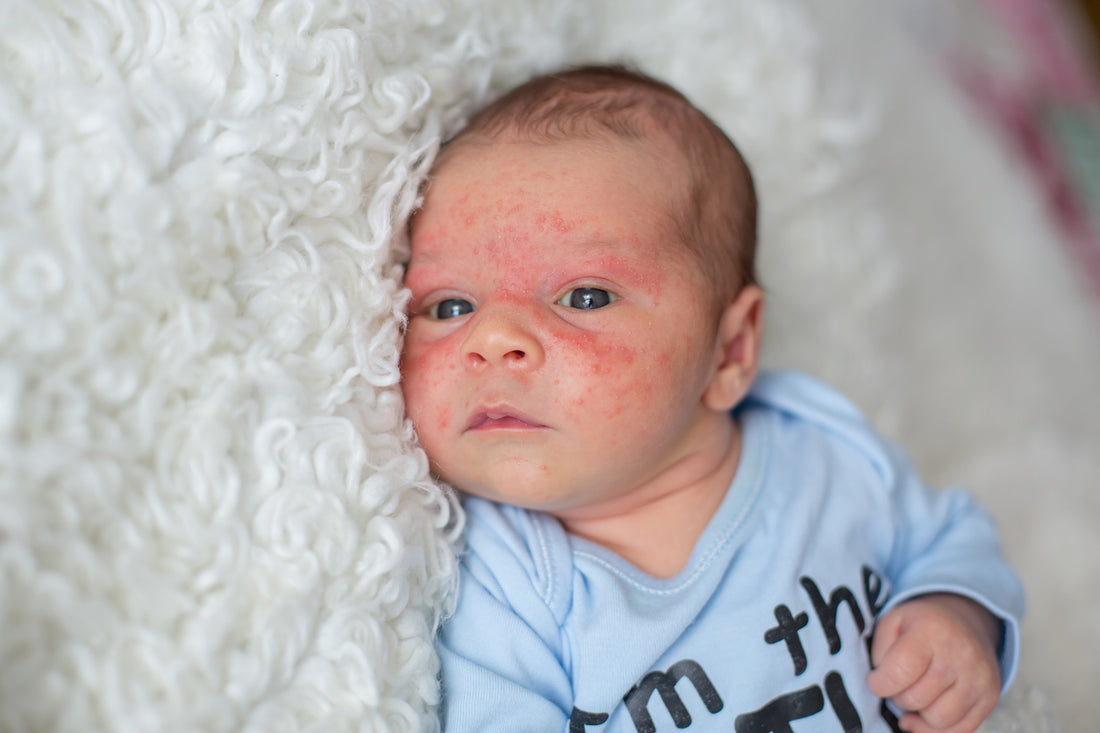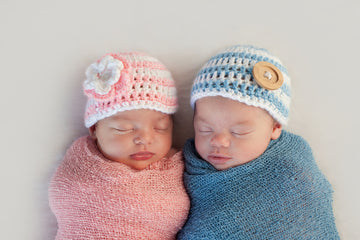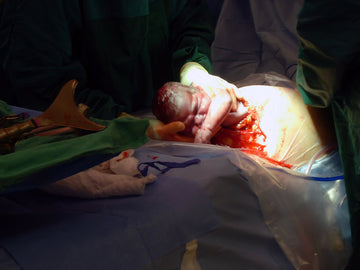Baby Acne: Causes and Treatments

Tiny red bumps. Pimples. Your newborn’s perfect complexion seems to have turned into the skin belonging to a hormonal, pubescent teenager.
Newborn acne is common, but why does it effect some babies and not others? In reality, science does not know the actual cause of baby acne. There is one common theory that seems to make everyone happy and is pretty well backed up, so it is the general cause that most people spit out when referring to this common stage of infancy: hormones.
What do we know?
We know that about half (or more) of babies will experience newborn acne. This condition appears around weeks 3-4 of life and can last days, weeks, or months – fading and reappearing randomly until around months 4-6, when it finally goes away for good. We also know that it does tend to go away on its own. Baby acne affects the face: chin, cheeks, forehead, and neck. It typically develops at the same time a newborn reaches peak gas production and fussiness (colic may be starting at this point too).Baby Acne Theories
The most recognized theory: During the final moments of pregnancy, a mother’s hormones cross the placenta into her baby. These hormones stimulate oil glands on the baby’s skin (and do other incredible things like maturing the lungs), this stimulates the oil glands on the skin, eventually causing baby acne.
Other Theories: (I’m including these because pediatricians will often suggest them as causes, but they do not seem to be as well believed as the above mention theory.)
- Hormonal exposure during breastfeeding. The mother’s hormones can be found in her breastmilk; therefore, they can cause breakouts.
- Abrasive soaps and washcloths may trigger baby acne. A newborn’s skin is quite sensitive and chemicals can cause many problems.
- Laundry detergent with strong chemicals, dyes, and perfumes may affect the skin and cause acne.
- Medications taken by the mother during pregnancy or while breastfeeding are passed to the baby as well. Each baby will handle these differently, but a common side effect would be a skin reaction.
- Viral illnesses can trigger rashes, included breakouts.
- Mother’s diet affects the baby when breastfeeding. Many doctors suggest cutting out dairy, sugar, and highly fatty foods, as all cause inflammation which can trigger acne.
Baby Acne Treatment
While baby acne tends to clear itself, there are several things you can try to help the inflammation:
- Skip the soaps and use warm water to gently wash the face.
- Don’t scrub the face.
- Skip lotions.
- Do not squeeze or pick the pimples, as it can cause scarring.
- Use breast milk on the affected area for 15 minutes and pat dry.
- Keep the face dry and clean.
- Do not put ointments or petroleum-based moisturizers on the face.
- Use a mild detergent without perfumes to wash baby’s clothes so as not to irritate baby’s skin.
- Alter diet if breastfeeding.
- Try dandelion tea
- Mix 1 teaspoon of honey and 1 teaspoon of lemon juice. Apply to baby’s face where acne is present with a cotton ball and leave on for ½ hour. Then, rinse with warm water.
- Use organic, unrefined coconut oil rubbed on in small amounts a few times a day.
- Cradle cap
- Eczema
- Skin rashes
- a red ring around the anus
- thrush
- dark circles under the eyes
- difficulty sleeping
- poor appetite
- poor growth
- “colic”
- “high-needs” behaviors
- Congestion
- Reflux
- refusing the breast or arching at the breast
- gassiness
Other Baby Acne Notes
Baby acne can be confused with infantile acne. Infantile acne will last until about 6 months old and contain pustules and possibly cysts, not just whiteheads and blackheads. It is also more red and inflamed than baby acne. Infantile acne is linked to genetics. Your child is more likely to experience it if you or your partner had severe acne as a teenager. While baby acne is not linked to breakouts later in life, infantile acne is linked to more extreme teen acne.







